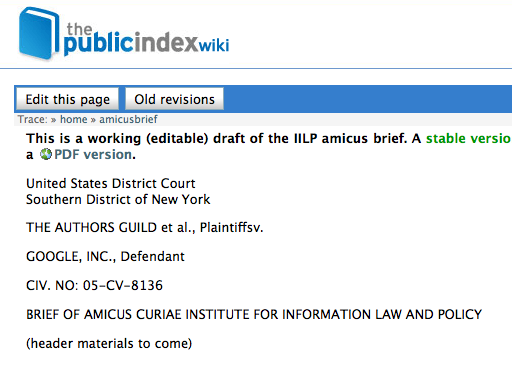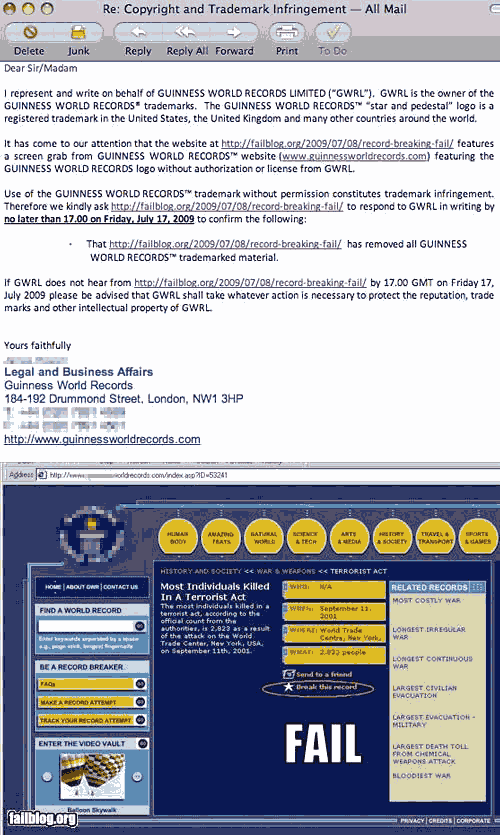 Several New York Law School students, led by Professor James Grimmelmann, started a Goggle Book Settlement site worth checking out: The Public Index. The site includes the basics of the settlement, the briefs filed thus far, and a good list of related blog posts form academics and librarians, but what makes this site stand out is the wiki style Google Book Settlement amici brief. Anyone is allowed to edit or contribute to this brief,
Several New York Law School students, led by Professor James Grimmelmann, started a Goggle Book Settlement site worth checking out: The Public Index. The site includes the basics of the settlement, the briefs filed thus far, and a good list of related blog posts form academics and librarians, but what makes this site stand out is the wiki style Google Book Settlement amici brief. Anyone is allowed to edit or contribute to this brief,
Here is a little more from the site:
The Public Index, a site to study and discuss the proposed Google Book
Search settlement. Here, you can browse and annotate the proposed
settlement, section-by-section. Just use the table of contents or the
search box at the right to get started. In addition, you can:* Study our reading room of lawsuit documents
* Join the conversation in our forums
* Draft an amicus brief to the court on the wikiThe Public Index is a project of the Public-Interest Book Search
Initiative and the Institute for Information Law and Policy at New
York Law School. We are a group of professors, students, and
volunteers who believe that the Google Book Search lawsuit and
settlement deserve a full, careful, and thoughtful public discussion.
The Public Index is a site for people from all points of view to learn
from each other about the settlement and join together to make their
voices heard in the public debate.
The innovative students are: Benjamin Burge, Stephanie Figueroa, Leanne Gabinelli, Cynthia Grady, Dominic Mauro, Marc Miller, Deva Roberts, and Andrew Smith. The site was funded through a Microsoft Grant.



